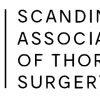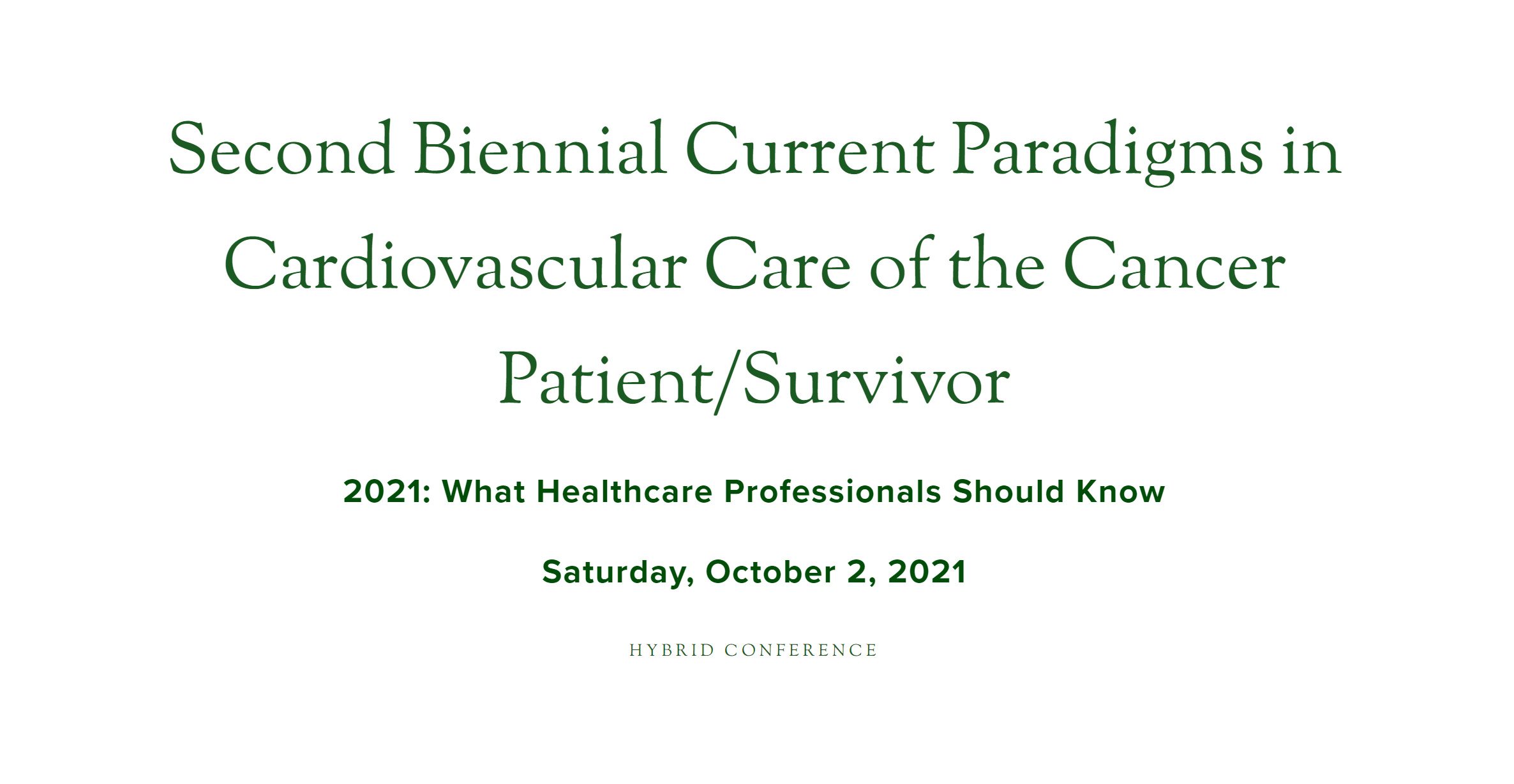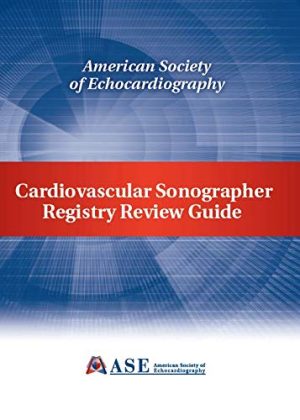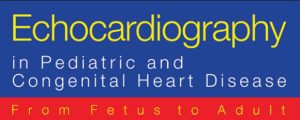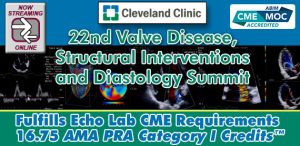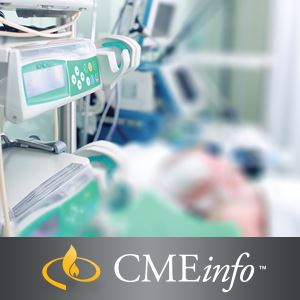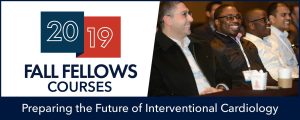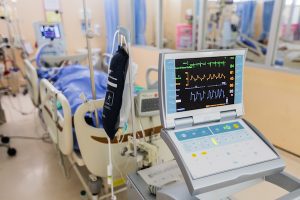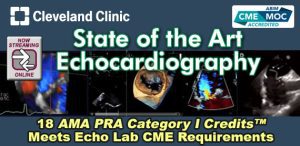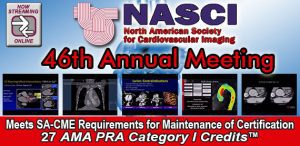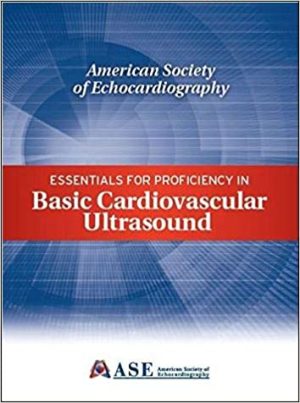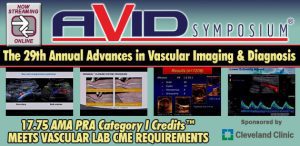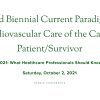Rush University Second Biennial Current Paradigms in Cardiovascular Care of the Cancer Patient Survivor 2021
$10
Rush University Medical Center Second Biennial Current Paradigms in Cardiovascular Care of the Cancer Patient Survivor 2021
Overview
19 videos + 1 pdf, size: 2.09 GB
Information:
Cardiovascular disease and cancer are the #1 and #2 causes of death in the United States. Both conditions involve many variables and their study is constant and diffuse. Cardio-oncology is a nascent field which focuses on preventing adverse cardiovascular outcomes in patients with active cancer; and improving the overall cardiovascular health of cancer survivors. This involves specific understanding of interactions between cancer and the cardiovascular system; as well as intrinsic knowledge of cancer therapeutic agents including chemotherapy, radiation therapy, and newer targeted therapies which include immunotherapy, such as immune checkpoint inhibitors and Car-T cell therapy. Furthermore, recent developments in the medical management of cardiac disease (such as SGLT-2 inhibitors and ivabradine) present new therapeutic options for affected cancer patients and survivors. With such rapid change, clinicians often find it difficult to remain up-to-date with the best means of identifying and treating patients. The purpose of this program is to familiarize primary care providers, hospitalists, oncologists, cardiologists, advanced practice providers, pharmacists and trainees with updated treatment of cardiac conditions seen in cancer patients and survivors.
Educational Goal
To provide state-of-the art best practice information regarding the continuum of cardiac care for the oncology patient.
Target Audience
This activity has been planned for Primary Care Providers, Hospitalists, Oncologists, Cardiologists, Advanced Practice Providers, Pharmacists, Nurses and Medical Trainees interested in learning about the field of Cardio-Oncology.
Learning Objectives
At the conclusion of this activity, participants should be better able to:
1. Define the risks of cancer treatment-related cardiac dysfunction for patients who have undergone therapy for cancer.
2. Provide some knowledge of cardiovascular effects of newer cancer therapies; as well as the potential use of newer cardiac drugs for management of cardiovascular complications associated with cancer
therapy.
3. Implement strategies for early detection, correction of cardiac risk factors and close, as well as long-term cardiovascular monitoring in order to reduce the effects of cardiotoxicity (including arrhythmias, heart failure, severe hypertension, valvular heart disease, pericardial disease, and
autonomic dysfunction) for patients who are at risk for cancer treatment-related cardiac dysfunction.
4. Assess appropriate and effective treatment strategies and referral for patients who have (or are at risk for) long-term toxicity-related cardiac
dysfunction, including heart failure, valvular dysfunction, hypertension, and autonomic dysfunction.
List of Topics:
2508Rush+Cardio+OncologyMailerp7FINAL.pdf
Biomarkers for Monitoring and Prevention in Cancer Heart Disease Traditional and Innovative Perspectives.ts
Breakout Session A Physicians.ts
Breakout Session B Advanced Practice Providers.ts
Cancer Therapeutic Agents of Arrhythmia Targeted Treatments Based on Possible Mechanisms.ts
Cardio-Oncology in the Wake of COVID-19 Lessons Learned – Past Reflections, Future Deliberations.ts
Cardiovascular Perspectives on Stem Cell Transplant and Car-T Cell Therapy The Old and the New for Assessment and Management.ts
Cardiovascular Toxicities of Chemotherapies Challenging the Paradigm for Monitoring .ts
Immune Checkpoint Inhibitors; What the Expanding Research is Showing, Contemplations for the Future.ts
KEYNOTE LECTURE CARDIO-ONCOLOGY Past, Present and Future. How to Make a Difference in Patient Care – A Cardiologists Perspective.ts
KEYNOTE LECTURE Cardio-Oncology Past, Present and Future. How to Make a Difference in Patient Care – An Oncologists Perspective.ts
Multiple Myeloma, Cardiac Amyloidosis Current and New FDA-Approved Management Strategies.ts
Novel Imaging Paradigms for Characterization of Cardiovascular Toxicities Associated with Cancer Therapy.ts
Overview of Short and Long-Term Management of Cardiovascular Disease in the Cancer Patient Research-Driven Guidance for the Clinician.ts
Overview Vying for 1 killer of Americans- How Cancers and Heart Disease Intersect- A Cardiologist’s Perspective.ts
Overview Vying for 1 killer of Americans- How Cancers and Heart Disease Intersect- An Oncologist’s Perspective.ts
The Modern Era of Radiation Therapy Contemporary Approaches to Modulating Cardiovascular Toxicities.ts
The Triangle of Cancer, Chemotherapy, and Vascular Insult; Future Concepts for Management.ts
Understanding the Biology of Cancer Treatment Induced Cardiac Toxicity.ts
VEGF-Tyrosine Kinase Inhibitors Novel Mechanisms Predictors of Hypertension; Management Strategies.ts
Connect With Us
You can reach us through a variety of channels. Choose the one that’s most convenient for you:
Telegram:
Connect with us on Telegram for quick queries and updates. Find us at our Telegram ID 👉🏻 @MedicalBoardCourses
Related products
All Medical Courses
The PassMachine Pediatric Anesthesiology Board Review Course 2018
All Medical Courses
ASE 2019 Cardiovascular Sonographer Registry Review, 2nd Edition
All Medical Courses
The Passmachine Anesthesiology ADVANCED Board Review Course 2017
All Medical Courses
22nd Valve Disease, Structural Interventions and Diastology Summit 2020
All Medical Courses
ASE 2016 Essentials for Proficiency in Basic Cardiovascular Ultrasound
